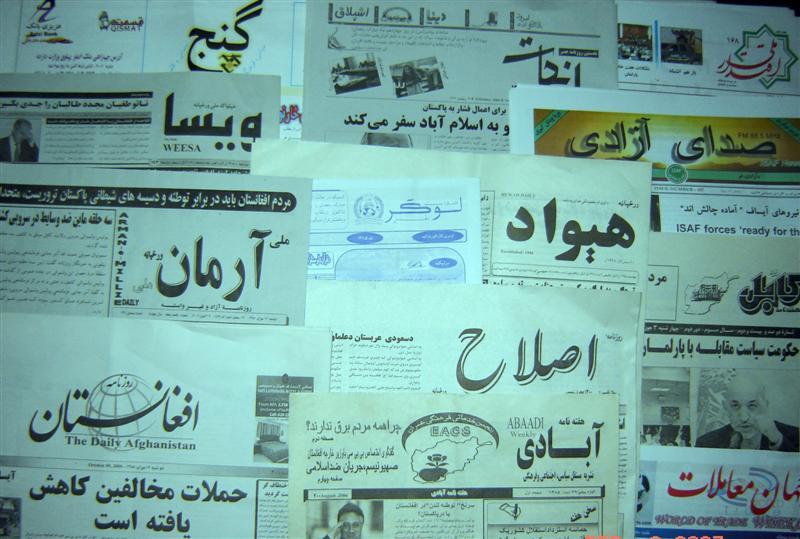NILI (Pajhwok): No daily paper is actively publishing in Daikundi as majority of the print media active for over a decade has stopped functioning because of multiple reasons, activists allege.
Freedom of expression has been one of the main achievements of the Afghan government over the last 13 years.
There were 17 government and private weekly and monthly papers in Daikundi which gradually vanished in the recent years.
The first monthly paper “Daikundi View” was launched by the youth of the province that lasted four years. Because of lack of budget the paper stopped publications.
Weak governance, censorship, lack of cooperation by the local officials, insufficient budget, and load shedding caused the papers shut down.
“Light shadow” was another monthly paper that stopped working since one and half years. Mohammad Reja former editor-in-chief of the paper said any governor appointed to the province were not cooperative with them.
He told Pajhwok Afghan News that Information and Culture Department did not have the vision and ability for helping the local media to prosper.
Mohammad Reja said every time the journalists wanted to get information from the officials they made excuses. “This is the worst kind of restrictions that the officials are committing against the press”
Parliament last year passed access to information law in six chapters and 32 articles which was also ratified by the president. Based on this law all governmental departments must provide the required information to the media.
The draft of the law took three years to be prepared by the ministry of information and culture with the help of journalists and civil society members.
Several journalists’ associations welcomed the law and called it a major step towards providing better and accurate information to public.
Najia, women’s rights activists, said the publications did not have anything on women’s issues and only had their own political agenda. She also accused the women’s affairs department for not having any publications for women despite having a lot of funds.
Hamid Wafaee, a journalist, said judicial organs were not cooperative with them. For instance, he said, a woman claimed that a justice department’s employee asked for her daughter’s marriage in return of resolving her problems over land.
“I tried to follow the issue and talk to the officials. They did not cooperate and said they had sent the case to the court. When I enquired with the court the judge told it is none of my business and did not provide any information,” he continued.
Earlier, also media people had complained that governor, police chief, and information and culture department was pressurizing media for censorship.
Journalists complain these measures would cause media outlets and local radios to stop functioning. Residents also said that governance in the province was weak and corruption was rampant. But local officials believed things were improving.
Khuda Bakhsh Seerat, acting director of information and culture department, acknowledged that a number of media outlets in the province had been limited but said: “It was not a source of concern.”
He added the main reason that some newspapers had ceased publications were lack of budget. Even the monthly newspapers like “Environment”, “Daikundi Youth” and “Daikundi” that were being printed by his department stopped their publications because the ministry of information and culture could not fund them, he added.
However, only recently a new weekly newspaper “Nili Voice” has started publication discussing issues from politics to socio-cultural issues.
Editor-in-chief of the weekly Mohammad Qasim Ataee said he was printing the weekly from his own money. He said for the long-run it was necessary for such publications to be supported.
Private radio “Aftab” has also been shut down since last month. Hanif Rezaee head of the radio said that restrictions by the local departments have made him stop broadcastings.
Two private radios of Nasim and Daikundi and national radio, radio liberty, and voice of America are the radios that still air programmes in the province.
Sayed Anwar Shahab said one of the reasons the media outlets were shutting down was because they started work without strong incentives only thinking they could earn money out of it.
Rahmatullah Sharifi a civil society activist in Daikundi said they depend on the projects without having proper plans for themselves. That is why they lose audience and finance.
hg/rm
Visits: 3









GET IN TOUCH
NEWSLETTER
SUGGEST A STORY
PAJHWOK MOBILE APP